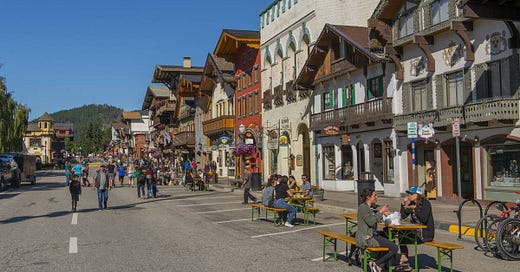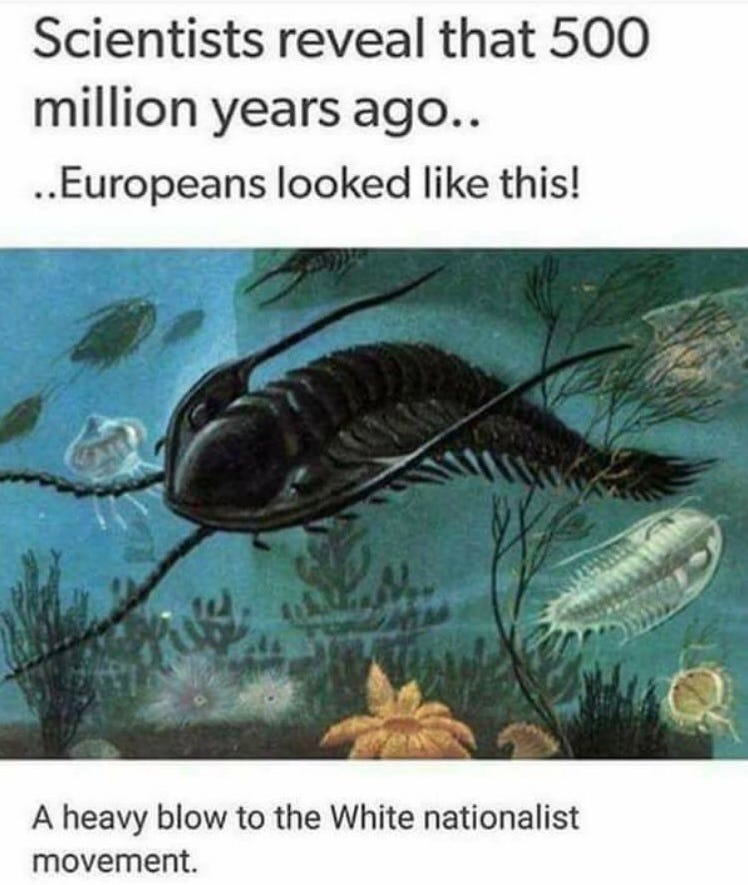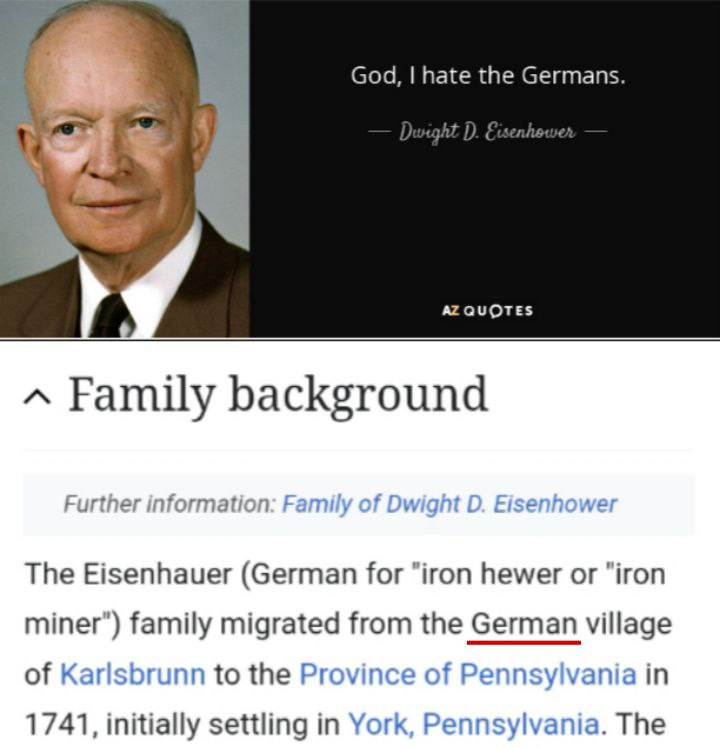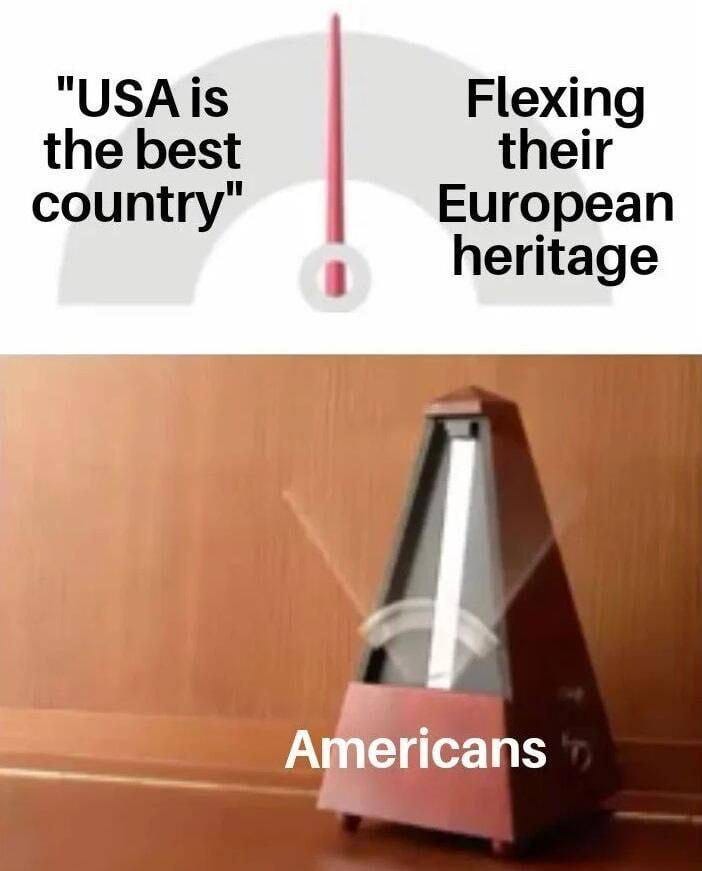There is an old joke. A dad joke. Perhaps you’ve heard it. It goes something like this: If you’re an American in the kitchen, what are you in the bathroom? European!
Whether your reaction to that joke is to chuckle or to cringe, the fact is there is actually a surprising profundity behind it. Does changing one’s location change one’s identity?
We live in an age of relentless deconstructionism. In film and literature, the hero has long been subject to deconstruction. Masculinity and femininity have of course been deconstructed so thoroughly that the ravenous deconstructors have moved on to deconstructing the biological reality of male and female sexes. Perhaps nothing has been deconstructed more, however, than the concept of racial and ethnic identity.
In this zeitgeist of taking apart things to see what they’re made of (and then having no clue how to put them back together), the White race has come under most scrutiny. ‘What does it even mean to be white?’ asks the deconstructionist, always writing ‘white’ with a lower-case w. Curiously, the deconstructionist himself is in possession of the answer to his own question, if and when the topic of ‘White Privilege’ arises. In that case, suddenly there is no confusion at all as to who is White and what it means.
This same smug question can be and is adapted for more specific identities as well. ‘What does it mean to be English? Who even are the British people? What does it mean to be Italian? What does it mean to be French? Who are the Irish exactly?’ The question is always meant to attack those native Europeans who desire their nations to remain as they have been for centuries, indeed millennia, and to justify the transformation of these nations via mass replacement migration into something entirely unrecognisable. The question is asked in bad faith. It is an increasingly overt attempt to reduce European national identities to a mere delusion, a ‘social construct’ from bygone and irrelevant times. The fact that these questions are never put before Asians, Africans, Israelis, or anyone else, makes the intent behind them rather obvious.
That said, in a globalised world this question, when asked in good faith, is not completely useless or malevolent. In fact it is quite a necessary question to ask. Thankfully, the answer is usually simple. Anthropology and modern genetic research have given us a lot of information to work with. Who are the Irish? They are a northwestern European people, native to the island of Ireland, descended from the indigenous Gaelic-speaking Celtic tribes. Who are the British? They are also a northwestern European people, who can be more precisely identified as Welsh, Cornish, Scottish, and English. Who are the French? They are a western European ethnic group, descended first and foremost from the Gauls and Germanic tribes such as the Franks, with a bit of Roman and Celtic mixed in too. These definitions sufficed up until their specificity and, worse (from a progressive liberal’s perspective), exclusivity, became ‘problematic’ for the globalist desire of a world with no borders, no nations, just global citizens consuming product in meaninglessly distinct economic zones. However, the definitions I just gave for the Irish, the British, and the French, are almost word for word the definitions given on Wikipedia. Despite all the attempts at deconstruction, and the attempts to revise these definitions so that they fall in line with inclusive ways of describing a nation, these definitions remain commonplace today. Because they are true.
The deconstructors ultimately end up making a mockery of themselves. In their attempt to delegitimise European identities, they fly their time machines so far back into the past that they end up deconstructing pre-historic humanoid species. Perhaps they should fly even further back in time and set their analytical minds to deconstructing the identities of the creatures who evolved out of the primordial waters!
I said that the answer to the question ‘what does it even mean to be X?’ is usually simple because there are indeed nations for whom the response is a bit more complicated. Here we get to the motivation for this essay and its titular query. Recently, Lana Lokteff of Red Ice fame posted the following on her Twitter account:
It always irritates me when White people in America, Canada, New Zealand, & Australia don’t think of themselves as Europeans! Our ancestors came from Europe. We are Europeans. Further, the nations of our race founded outside of Europe are still European. You aren’t just White, you are European. Europe is home to 80+ distinct ethnic groups of which we White folks come from. Yes we are ethnic, diverse, and unique.
This prompted my friend and renowned appreciator of all things Dissident Right, Gaddius Maximus, to respond in respectful disagreement.
Americans aren’t Europeans. The vast majority of us only care about our ancestors (blood) as far back as when they first set foot on this continent (soil). That’s usually when our family story (myth) begins.
He also followed that tweet with another one, which stated with honesty and clarity the difference between Gaddius’ view and Lana’s.
I haven’t sent my spit to Google or the Mormons yet, but I’m fairly certain the results would come back a large percentage from the British Isles. Probably Scotland & England predominantly. Because of this I have great affinity for that part of the world but for me to claim it somehow makes me ‘British’ doesn’t really seem to pass the smell test. I hold the same view for concepts like ‘European’ unless we’re talking in the broadest possible biological sense.
Gaddius then conducted a poll across Telegram and Twitter asking people if they considered Americans to be Europeans. The responses in the comments are expected, but still interesting. Many people took that ‘broadest possible biological sense’ approach and asserted that, as ‘White people’ (a term which I have often expressed displeasure in using, but will use in this essay because I acknowledge that it works as a shorthand when speaking about American demography), Americans and Europeans are the same, or at least, Americans are descendants of Europeans or an extension of Europeans. Others had questions regarding the importance of things like a nation’s ‘soul’ or its behavioural and psychic differences. Others asked, in a good faith way, what was meant by ‘European’.
Because I consider myself a European, because I grew up in the US, and because these kinds of questions are the very reason why I decided to create the Pox Populi persona in the first place, I will add some of my own experiences and observations regarding this topic.
While the results of Gaddius’ poll, as of writing this, show that 48% of American respondents agree that Americans are Europeans, I believe this is reflective only of online ethno-nationalists. If the question ‘Are Americans Europeans?’ were put to the average American normie, I think the response would probably be a raised eyebrow, a bemusedly open mouth, and, finally, a resounding ‘NO’.
This also brings us to the uncomfortable (for some) reality that the American nation is not one of those nations who can be defined as easily as the Irish or the French. Leaving aside the matter of who the United States was originally intended for (White persons of good character! White persons of good character!), the America of today is a prospect nation. It is a passport nation. So rather than responding to the poll with the question ‘what do you mean by European?’ it’s more useful to ask ‘what do you mean by American?’
Online ethno-nationalists might take it for granted that the demonym ‘American’ is reserved only for those White folks who descend from Europe, specifically Britain, but unfortunately, errors and subversive policy decisions from America’s ancient and recent past make this an impossible position to take in the real world. Is Michael Jordan not American then? And if he isn’t, what is he? Indeed, are black Americans ‘Africans’? What about America’s Asians? What about those Americans who are of mixed race, yet nonetheless are almost cartoonishly proud to be ‘an American’?
I can say from personal experience that the non-White population of America does not give a damn about Europeans. One occasion in particular always sticks with me. When I was 18 and just about to move to Italy, I was telling some co-workers about my upcoming relocation and answering some of their questions. At one point, the obese black man I worked with chimed in: ‘Man, fuck dem Yer-o-pee-inz! Watchu wanna go’on der for?’ Hardly surprising, sure, but it highlights the importance of defining who the ‘Americans’ are in the question posed by Gaddius. And while it may not come as a shock to know that America’s blacks, Latinos, Asians, and all their variations, hold Europeans in no special regard, it is worth gauging the White American view on Europe.
I believe there is, sadly, a disconnect between American ethno-nationalists and their fellow White countrymen. As I stated before, I believe the average White American would not agree that ‘Americans are Europeans’, and in fact many White American normies have a similarly antagonistic, or at least apathetic, feeling towards Europe that is not too different from the feeling of America’s non-whites towards the Old World.
Apropos to this, the other day I commented on a clip from an interview of Nick Fuentes conducted by a red-haired girl named Pearl Davis. In the clip, Davis and Fuentes are about to dive into the matter of diaspora Jews who have such a strong feeling towards Israel, when Davis says ‘I’m Irish. I don’t really care what goes on in Ireland.’ As you can see in my Telegram post, I found Davis’ apathy rather sad and unfortunate. I don’t know who Pearl Davis is. I don’t know how thick her Irish blood really is, although as American Krogan noticed, it is interesting that Davis is innately aware of the fact that it is one’s blood, not one’s location nor one’s accent nor even one’s customs, which defines one’s ethnic identity first and foremost. Regardless, that Davis ‘doesn’t really care’ about Ireland even though she calls herself Irish is something that I could never understand and never will understand. As someone who is Italian and Irish, I could never imagine myself being so apathetic to the goings-on in Italy and Ireland. I could never imagine being apathetic about the history, traditions, languages, and so on, of those two places. Even as a child with no knowledge of concepts like ethno-nationalism, identitariansim, and ‘blood and soil’, I still felt a connection to Italy and Ireland. I knew that those places were the homelands of my family, therefore it simply made sense to me that I should be interested in them. Of course, now that I am someone who speaks on the existential threats faced by European nations such as the Irish and the Italians, I find myself more concerned and connected to those places and those peoples than ever before.
But I realise that I am an exception, not the rule. Most Americans, even if they are proud of their European heritage, don’t do much to honour it. The Americans who descend from non-English speaking European nations don’t often learn the language of their ancestors and family back on the Old Continent. I am not sure how one could know the exact number, but I’m willing to bet that a substantial percentage of Americans have never been to their ancestral European homeland. This collection of clips from The Sopranos is illustrative.
I also realise that White Americans don’t stop at the uninterested indifference displayed by Pearl Davis. Many of them, even ones who consider themselves ethno and/or White nationalists and members of the Dissident Right, are frankly antagonistic towards Europeans.
There is, of course, nothing strange about putting one’s one country first. If Americans want to put the interests and success of America first, even if that comes at the expense of Europe, they are well within their rights to do so. The French and the Italians are both Europeans, but which nation do you think the Italians care about more? It’s the same with America. This is why I don’t believe in a White superstate. I believe in sovereign nations, and sovereign nations should look out for themselves before anyone else. That said, it cannot be denied that on many crucial occasions, the American leadership has taken very anti-European positions, and these anti-European positions have trickled down to the general population too. Whether it is evidenced by Americans gloating over the ‘Europoors’, or suggesting that Europe needs America to save it again (and owes America, forever, for being ‘saved’ in the past), or the deeds of the American ruling class vis a vis Europe, it is no overstatement to say that it seems as if someone took a chainsaw and mangled whatever European roots Americans might have felt, and destroyed their sense of kinship with Europeans. The irony is that Americans love to flex their European ancestry. Especially within nationalist communities, but even within the White American population at large, you will often hear someone explaining in great detail the various percentages and mathematical equations of their European blood. ‘I’m a quarter Swedish, a quarter Dutch, half German, I think, and half Scottish. Or was it half Swedish and a quarter Scottish?’ This is, of course, a facetious example but I recall having many conversations like this with American youngsters. Lots of them also added that they had some Native American tribe in the mix too.
I suppose this medley of European ethnicities makes it hard to feel entirely connected to one or the other, and I suppose this flexing of European ancestry while simultaneously puffing out one’s big American chest can only be expected from a country so hyper-patriotic yet so insecure in its identity and so anxious about its future.
Americans are Americans (but)
The way I see it, the question of the American identity is made difficult to answer because it never actually had, and now never will have, a proper, organically occurring ethnogenesis. As we saw earlier, European nations like the British and the French are descendants of various ancestral tribes, tribes which were mostly similar and all lived around the same areas, but had some significant differences too. Over time, over a long time, those tribes became the nations we have today.
In America’s case, everything seems to have been sped up too fast. I’m not aware of a statute of time required in order to achieve an ethnogenesis, but I don’t think 200-300 years is enough. The first European settlers in the New World knew who they were. They were self-aware. They knew they were Englishmen, for the most part. Later, other Europeans were added to the mix, but this happened within a small window of time. If mostly similar European tribes had their issues getting on with one another back in the Old World, enduring centuries of war, invasion, occupation, and other various forms of strife on the path of their ethnogenesis, imagine how many more issues arise when you compress the time.
If America had only ever been populated by Englishmen, Scotsmen, Germans, and Frenchmen, maybe there could have been a genuine ethnogenesis, provided they had another couple centuries to live together. And this is without addressing the matter of the Africans brought over with them, nor the indigenous ‘Native American’ peoples already living on the land.
But then just as recently as 1965 the floodgates were opened to literally the rest of the world. And, as Joe Biden said, it’s been a ‘constant, unrelenting stream’. If it’s already a bit tricky to get Germans, French, and Englishmen to assimilate, cohabitate, and eventually form a new ethnos, and if matters only got more complicated once you threw in the Italians and the Irish, imagine how complicated things get when you’re adding sub-Saharan Africans, indigenous South Americans, Mongolians, Chinamen, Slavs, Eastern European Ashkenazi, etc.
There’s just no way to form a nation, an ethnos, out of all that, not by the historic definition given to us by Herodotus at least.
The reason why Americans’ Europeanness is up for debate, and not the Europeanness of Australians or Canadians or the Boers in South Africa, is precisely because of this rapid mixing together of entirely different races. That isn’t to say Canada, Australia, and even Europe herself, aren’t in the process of trying to catch up rapidly with America on this path of ‘melting pot’ madness, but it is merely my opinion as to why we find ourselves examining American identity more frequently than Canadian or Australian or Afrikaner. Again speaking from personal experience, I also have not come across as many Canadians or Australians who exhibit that bipolar, love-hate attitude towards Europe.
In hindsight, I think—and many of you readers probably agree—that it hardly needs to be said that the demographic transformation of the fledgling American nation, brought about by subversive actors with proto-globalist designs, has ended in disaster. The ‘melting pot’ has now boiled over. But this is a fate that many great civilisations—or empires if you will—were fated to endure as well. Demographics undid the Babylonian Empire and they undid the Roman Empire too. European nationalists are looking on and fighting back in what ways they can as their homelands are socially engineered through mass immigration—and by the same sort of subversive actors—to resemble more and more the American ‘melting pot’, passport-nation model.
Americans are Americans, but as the country of the United States grinds along the rusty tracks of civilisational decline, the salvation for White Americans will lie in having another go at an ethnogenesis based on exclusivity. In that regard, Americans will have to remember that they are, in an important way, also Europeans.










